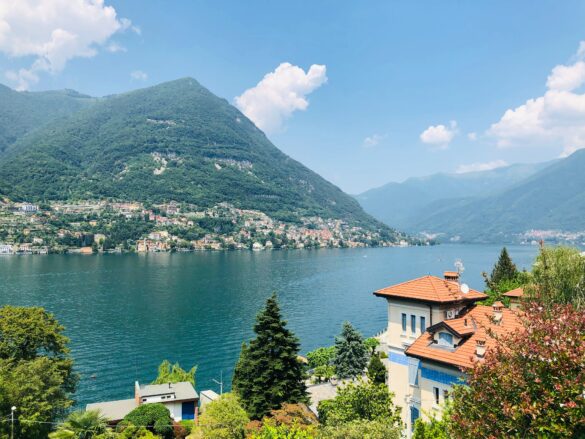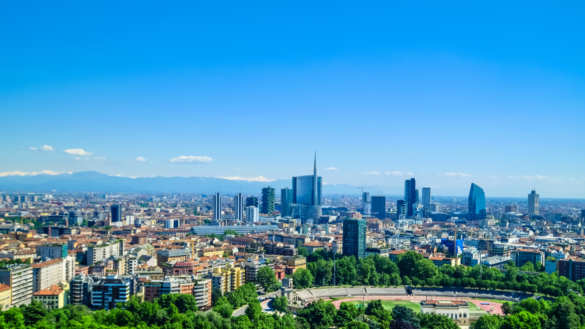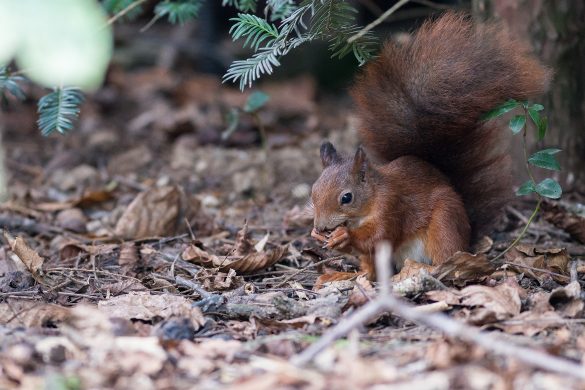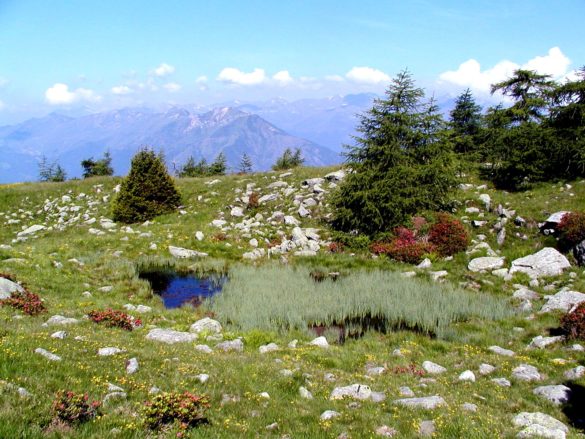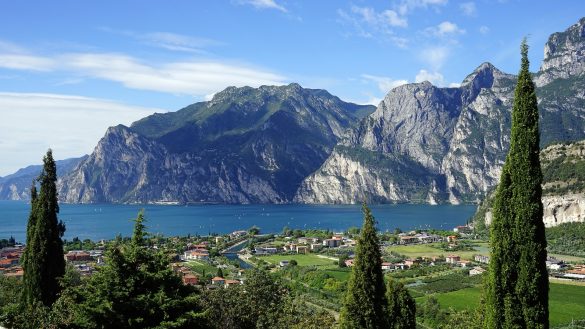Raising farms productivity and sustainability while protecting habitat and species
Lombardy is the fourth-largest region of Italy. It is bordered by Switzerland and by the Italian regions of Trentino-Alto Adige/Südtirol, Veneto, Emilia-Romagna, and Piedmont. The population of Lombardy is over 10 M inhabitants which means a high rate of human density especially in the plane land making biodiversity conservation a challenge.
Anthropic pressure on the landscape due to land fragmentation, pollution and invasive alien species is critically endangering ecosystems while climate change is reducing habitats. In the Alpine biogeographical region, 43% of Natura 2000 sites are in bad conditions, 39% in a not adequate condition and the rest 18% in a favourable condition. In the continental side, the most anthropized, the situation is 30% in bad condition, 43% in a not adequate condition and 27% in favourable condition.
The LIFE IP “GESTIRE2020” (IPG2020) was born in this challenging context as an innovative and experimental solution to biodiversity conservation in Lombardy, co-financed by the European Commission in the framework of the LIFE+ Program.
IPG2020 is a strategic and complex project, which aims to improve the knowledge and management skills of the Natura 2000 sites, implement several related projects to improve the conservation status of habitats and species particularly protected or at risk of disappearance, implement ecological corridors, fight against invasive alien species and raise public awareness on issues related to the protection of biodiversity. Lombardy’s project is set up in 6 lines of action, and has the following objectives:
- Improve the governance and management models of the Natura 2000 regional network through an increase of capacity building activities of stakeholders involved in the managing of the regional network,
- Implement concrete actions for the conservation of habitats and species
- Implement concrete actions for the conservation of animal species,
- Prevent and contrast the spread of invasive alien species,
- Monitor conservation status of protected habitats and species, and
- Build and strengthen ecological networks, to better connect protected areas.
The LIFE IP “GESTIRE 2000” projects has a total investment of 17M Euros provided through Life Funds and other Partners and 83M Euros provided through Complementary Funds.
One of the project’s strengths is the numerous partnerships it has develop and the alliances formed. To mention a leading example, the regional government has created an alliance with Lombardy’s Agency for Forest and Agriculture (ERSAF), Lombardy Foundation for the Environment (FLA), State Forestry Corps (CCF), World Wildlife Foundation (WWF), Lipu-BirdLife and Comunità Ambiente, to launch an Integrated Project, co-funded by EU Commission and launched in 2016. This particular project intends to address the challenges of integrating biodiversity considerations into the agricultural sector. Particularly, the main challenge is raising farms productivity and sustainability and, at the same time, creating and maintaining habitat and species.
Life IPG2020 is an 8 year-long project working to develop initiatives in four wide thematic areas: Capacity building and governance, restoration of habitat and species, monitoring and communication.
To support the integration of biodiversity considerations into agriculture, the project created the figure of “technical facilitators”, experts that provide support to local farmers and management bodies of the Natura 2000 (N2000) network of protected areas in the territory. The technical facilitators’ key activities are:
- Networking between offices in the public administration
- Stakeholder engagement
- Research and monitoring of funding opportunities
- Practical support to farmers and management bodies of N2000 network to prepare projects for grants
They aim to overcome the limitations that constrain the full access of the beneficiaries to funding opportunities, they do so by identifying the available funds, sharing those opportunities with the farmers and stakeholders, provide them with specialized technical support and steer the use of external funds where are most needed and in the most appropriate ways.
Outcomes
Some valuable outcomes of the local projects financed thanks to the support of technical facilitators have achieved both the economic sustainability of farmers and the biodiversity target they set to achieve. Among some of the initiatives launched are:
- Recovery of fountain springs to ensure water supply for crops and the core habitat of wetlands (these projects, mainly financed through the Rural Development Programme (RDP), involved more than 20 farms, 4 municipalities and other associations, cooperatives and consortia);
- Supply of 50 electrical fences which helps the shepherd protect their herd from predator attacks;
- Control of invasive alien species through the controlled grazing of goats and sheep helps safeguard particular species such as orchards and dry meadows habitats (Project “Natura Vagante”);
- Projects concerning forest management that combines the cutting of trees of different ages and the release of dead plants to support bat life and several species of birds;
- Training and education on best practices and lessons learned within the IPG2020 project to reinforce a new approach to land management for 1000 civil servant of public administration.
By taking an integrated and holistic approach, the Technical Facilitators play the role of coordinators to ensure that all initiatives are aligned with the broader vision of benefiting both the local farmers and the biodiversity and nature impacted by their activities.
Main findings and lessons learnt
The experience of the Technical Facilitators can easily be replicated into regions with similar challenges as Lombardy. The core principles of their work are:
- Networking through offices and environmental agencies and more importantly, with project partners;
- Prioritize public-private partnerships. Life IPG2020 is co-financed by CARIPLO Foundation;
- Strengthen links and stakeholder engagement;
- Take an integrated approach, mainstream biodiversity; and,
- Think long-term.
The IPG2020 involves very different ecosystems that can be found in several places in the world, making the IPG2020 model replicable in different geographical areas. In fact, on a European scale, other regions can apply to the European funds available through the LIFE Programme.
The idea of a Technical Facilitator developed as part of the IPG200 project can also be found in other countries. Delegations of foreign experts have visited Lombardy to learn from their experience while developing their own proposals proving that this method can be exported outside Lombardy, adapting it to regional and administrative conditions.

